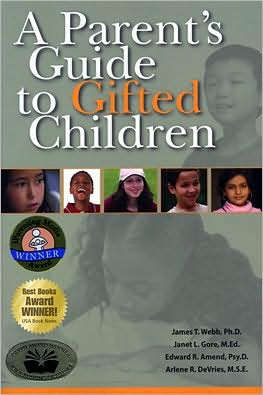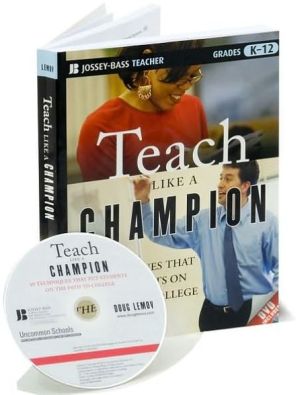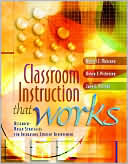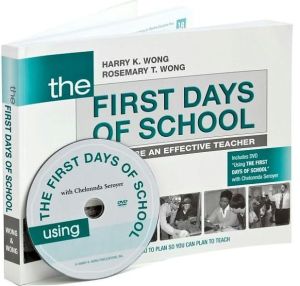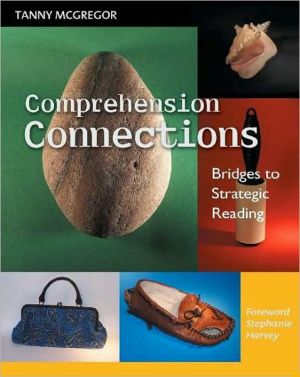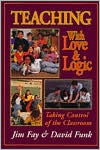Parent's Guide to Gifted Children
Raising a gifted child is both a joy and a challenge, yet parents of gifted children have few resources for reliable parenting information. The four authors of this award-winning book, who have decades of professional experience with gifted children and their families, provide practical guidance in areas such as: characteristics of gifted children; peer relations; sibling issues; motivation & underachievement; discipline issues; intensity & stress; depression & unhappiness;...
Search in google:
Raising a gifted child is both a joy and a challenge, yet parents of gifted children have few resources for reliable parenting information. The four authors of this award-winning book, who have decades of professional experience with gifted children and their families, provide practical guidance in areas such as: characteristics of gifted children; peer relations; sibling issues; motivation & underachievement; discipline issues; intensity & stress; depression & unhappiness; educational planning; parenting concerns; finding professional help; and much, much more. Midwest Book Review Written by the team of James T. Webb, Ph.D., Janet L. Gore, M.Ed., Edward R. Amend, Psy.D. and Arlene R. DeVries, M.S.E, A Parent's Guide to Gifted Children is a well-rounded resource written especially for parents and lay readers. Chapters cover the characteristics of gifted children, emotional concerns such as unhappiness and depression, guidelines for aiding gifted children in the social development when they often have more in common with a notably older peer group than children their own age, concerns for 'twice-exceptional' children who are gifted in one area and disadvantaged in another, and much more. Extensive endnotes, references, and an index round out this sensible, 'must-have' for parents of gifted children.
Introduction\ \ The Importance of Parents\ \ Parents play an essential role, particularly in a gifted child's early education years. Being a gifted child can be joyful, but sometimes it is painful, too. Parents can help children know that other family members share their abilities, concerns, and ways of viewing the world. They can also help gifted children develop an appreciation for many ordinary things and everyday people, as well as a sense that they have a place in the world. Perhaps most importantly, parents can make their home a stimulating and safe harbor where gifted children know there are always people who love them, who understand their dilemmas, and who care.\ \ Our experience and interpretation of the research leads us to believe that the most effective guidance and problem prevention lies with caring, knowledgeable, and supportive parents. Intellectual development and emotional reactions begin in infancy and preschool years, and many major behavioral patterns are set by the time the child reaches school age. In the early years, birth to ages four or five, it is the child's parents who provide virtually all of the support.\ \ A solid home foundation is especially important when gifted children feel out of place with the surrounding world. Home can be a haven--a place to recharge one's batteries--where adults help the child to untangle and comprehend the many perplexing behaviors that exist in the world outside. When home is that kind of refuge, and when one or two other adults, such as teachers, neighbors, or others, emotionally support a gifted child's self-concept, these children usually survive, and even thrive, despite sometimes difficult or eventraumatic events. Support and encouragement at home not only guide the gifted child, but also give the child models of inner strength that he can call on later.\ \ Ideally, as a child gets older, parents and educators will work together. Certainly, teaching is a significant part of developing talent from year to year, but we believe that parents are particularly important in the long-term outcome of gifted children. Where there are insufficient educational opportunities, parents can provide enrichment and can negotiate with schools to help ensure that there is a match between the educational program and the child's interests, abilities, and motivation to learn. And good parenting--in which parents understand, nurture, guide, and advocate for their high potential child--can overcome a year or more of mediocre or even negative school experiences.
DedicationPrefaceIntroductionChapter 1. Defining GiftednessChapter 2. Characteristics of Gifted ChildrenChapter 3. Communications: The Key to RelationshipsChapter 4: Motivation, Enthusiasm, and UnderachievementChapter 5: Establishing Discipline and Teaching Self-ManagementChapter 6: Intensity, Perfectionism, and StressChapter 7: Idealism, Unhappiness, and DepressionChapter 8: Acquaintances, Friends, and PeersChapter 9: Family Relationships: Siblings and Only ChildrenChapter 10: Values, Traditions, and UniquenessChapter 11: Complexities of Successful ParentingChapter 12: Children Who Are Twice-ExceptionalChapter 13: How Schools Identify Gifted ChildrenChapter 14: Finding a Good Educational FitChapter 15: Finding Professional HelpEndnotesAppendix A. ResourcesAppendix B. Suggested ReadingsReferencesIndexAbout the Authors
\ About.comThe one drawback to the book is that it does not have much discussion on profoundly gifted children. However, A Parent's Guide to Gifted Children is still one of the best books available on parenting gifted children. I truly wish this book had been available when my child was young.\ —Carol Bainbridge\ \ \ \ \ Feedback MagazineIt was a real delight to encounter this work that provides both professionals and parents with guidance, insights and courses of action in providing the gifted children and adolescents with optimum growth experiences. The authors are a savvy and experienced group who have presented an outstanding work that is at once rich in the history and research on the gifted, balanced by practical guidelines extremely valuable to every reader...This work is most valuable, a very worthwhile addition to your library, one to recommend...\ —Robert V. Heckel, Ph.D., ABPP\ \ \ Midwest Book ReviewWritten by the team of James T. Webb, Ph.D., Janet L. Gore, M.Ed., Edward R. Amend, Psy.D. and Arlene R. DeVries, M.S.E, A Parent's Guide to Gifted Children is a well-rounded resource written especially for parents and lay readers. Chapters cover the characteristics of gifted children, emotional concerns such as unhappiness and depression, guidelines for aiding gifted children in the social development when they often have more in common with a notably older peer group than children their own age, concerns for 'twice-exceptional' children who are gifted in one area and disadvantaged in another, and much more. Extensive endnotes, references, and an index round out this sensible, 'must-have' for parents of gifted children.\ \
